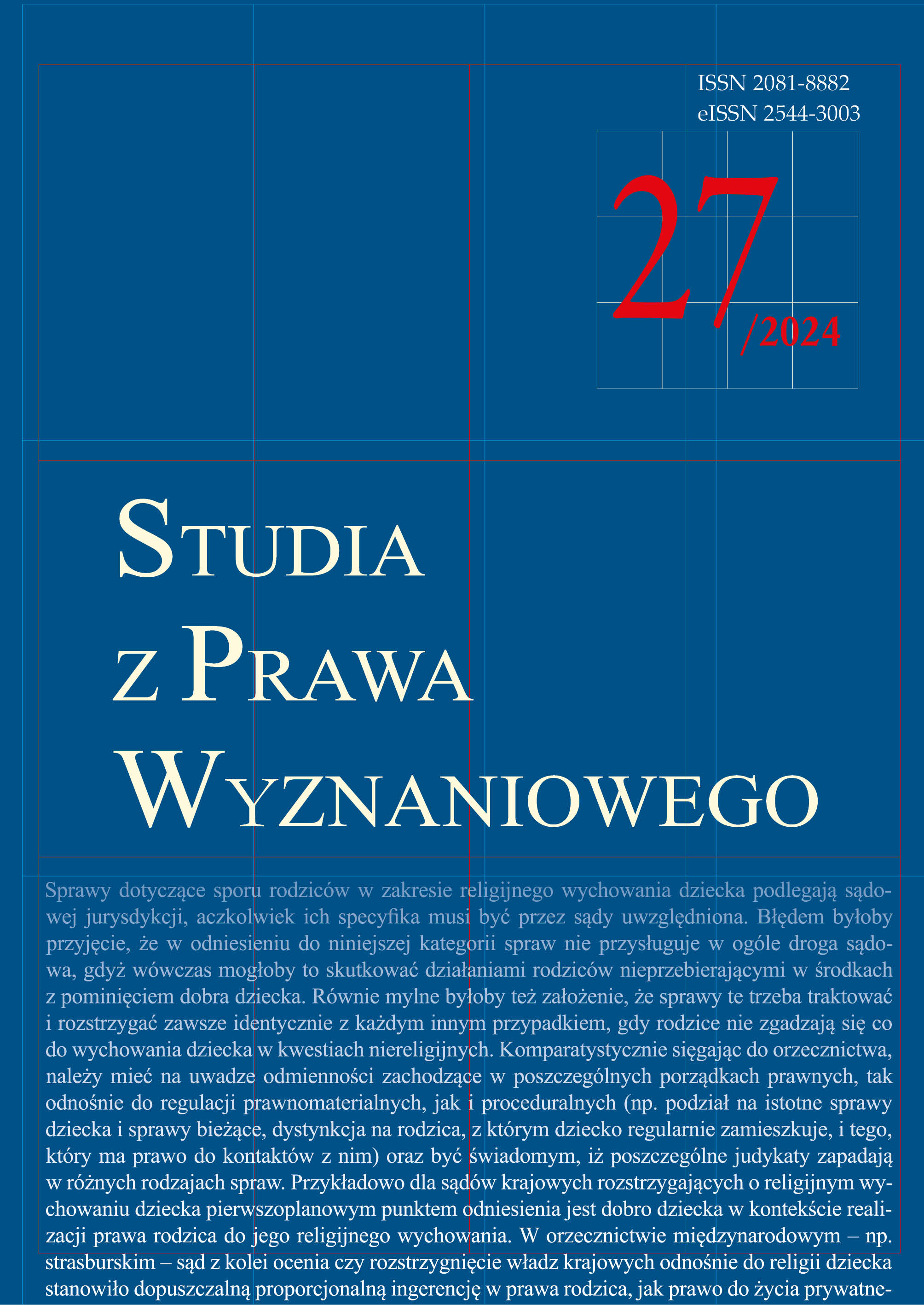Niemiecki system finansowania kościołów i innych związków wyznaniowych
The German system of financing Churches and other religious organizations
Author(s): Mirosław KosekSubject(s): Law, Constitution, Jurisprudence, Constitutional Law, Public Law, Law on Economics
Published by: Katolicki Uniwersytet Lubelski Jana Pawła II
Keywords: church tax; Kirchensteuer; state benefits for religious organizations; Church-State relations; law on religion; podatek kościelny
Summary/Abstract: This article discusses the German system of financing churches and other religious organizations, including the two fundamental sources of such funding: state benefits for religious organizations and the church tax. German state benefits to religious organizations can be categorized as either compensation payments related to the takeover of church property during secularisation (Art. 138 of the Weimar Constitution, Weimerer Reichsverfassung, WRV) or subsidies. The discussion of the church tax focuses on its legal basis (Art. 137.6 WRV) and selected elements of its structure, including its types, the tax base and the scope of entities to which it applies.Several conclusions can be drawn from the article’s analysis. In Germany, state contributions to the financing of religious organizations in the form of compensation payments—the legal basis of which is Art. 140 of the Basic Law for the Federal Republic of Germany, Grundgesetz für die Bundesrepublik Deutschlan (Art. 137.1 WRV) – are subject to criticism. As demonstrated by the 2020 bills, it must be assumed that attempts to abolish these state benefits will continue. However, state benefits in the form of specific subsidies to religious organizations, as well as the church tax itself as the primary form of funding churches and other religious organizations in Germany, are not subject to similar doubts and discussions.Yet it must be noted that the church tax in its German form, particularly the integral link between religious affiliation and the obligation to provide benefits, has caused disputes and discussions related to the doctrine of canon law. This issue, however, would require a separate and detailed treatment that is beyond the scope of this article.
Journal: Studia z Prawa Wyznaniowego
- Issue Year: 2024
- Issue No: 27
- Page Range: 47-61
- Page Count: 15
- Language: Polish

